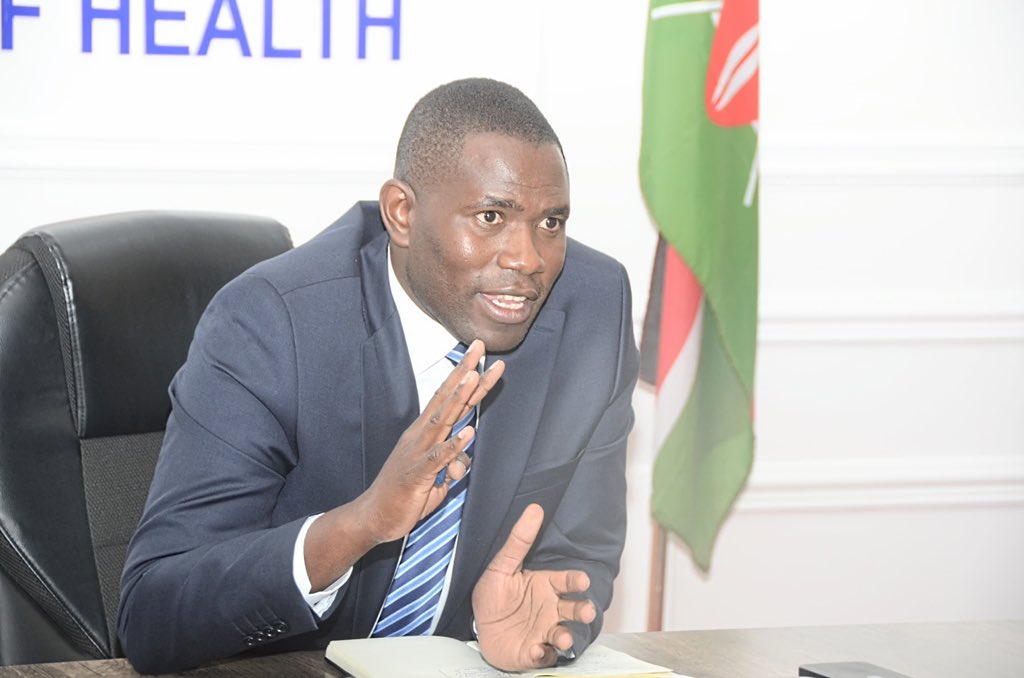How hospitals trick inspectors, SHA into paying millions for ghost services

Oluga said some little-known facilities, including those linked to powerful figures, had received millions of shillings for questionable services, a revelation that has sparked public outrage.
Medical Services Principal Secretary Ouma Oluga has admitted that loopholes in the Social Health Authority (SHA) system have enabled hospitals to siphon millions of shillings through fraudulent claims, barely a year after the new health insurance scheme began paying hospital bills.
Speaking on Tuesday, Oluga said some little-known facilities, including those linked to powerful figures, had received millions of shillings for questionable services, a revelation that has sparked public outrage.
More To Read
- TSC confirms shift to SHA cover for teachers from December 1
- TSC sued over teachers’ migration from MINET insurance to SHA
- 1,567 injured police officers compensated, says Mwangangi as Senate pushes for transparency
- SHA announces refund process for mistaken M-Pesa premium payments
- Ruto announces increase in cancer treatment cover to Sh800,000 under SHA from December 1, 2025
- Government to review SHA packages amid calls for better cancer care
A recent media exposé revealed that facilities with limited capacity had pocketed millions, raising concerns about glaring weaknesses in the system. Ministry figures suggest that 28 to 35 per cent of medical claims in the country are fraudulent, ranging from inflated bills to ghost services.
“There are legitimate concerns because of transparency. For the first time in our history, you can go online and see how much each hospital has been paid. But the outrage should also be credited to us for giving out that information,” Oluga said.
As part of a sweeping crackdown, the ministry has shut down 728 health facilities and downgraded 301 others.
He detailed how some health practitioners set up fully equipped facilities to impress inspectors from the Ministry of Health, only to strip them of equipment once approvals are issued.
“Some facilities claimed to be Level 4 hospitals when they were not. They would present high-end equipment and specialists during inspection, then remove them once licensed. That is why we acted,” Oluga said.
“The inspectors give them the licence because they have seen those things. One year down the line, they open another branch or facility and take the X-ray machine that was in the first facility.”
He added that the scheme is replicated at other branches, allowing facilities to be contracted by SHA to provide services they cannot deliver.
“So it’s not that the inspectors were wrong… so what happens is that six months later, this facility cannot offer the services it registered for. SHA pulls that data from the medical council and contracts you to offer maternity services, but when wananchi go there, they cannot get maternity services,” the PS said.
Oluga revealed that such facilities continue to receive millions in payments from SHA for non-existent services.
To counter this, he said the ministry has established a 24-hour call centre that receives about 3,000 calls daily from patients flagging complaints. He noted that the hotline has become a key tool in unmasking fraud.
“We check and find out that that hospital has actually claimed that they offer maternity services. Then we sent the regulator, the regulator says these guys registered to be offering maternity services, but the bed they had had been removed,” Oluga said.
Once fraud is confirmed, the facilities are immediately suspended and their files forwarded to the Directorate of Criminal Investigations (DCI) for prosecution.
Despite the scandal, the PS defended SHA as an improvement in openness.
“For 62 years under NHIF, no one ever saw a hospital’s claim payments. This is the first time in the world you can go online and see those figures,” he said.
Oluga further warned that fraud in the health sector is not just institutional but also cultural, reflecting deeper societal problems.
“It is criminal, yes, but it is also cultural. Hospitals register with equipment and top doctors to get licensed, then move them elsewhere. Patients are charged Sh1,500 for Panadol that should cost Sh30. This is everyday fraud,” he said.
He stressed that while reforms are being tightened to lower costs and enforce accountability, true change requires a shift in values.
“As we point fingers at government, we must also point fingers at ourselves. We need people who love this country enough to stop cheating it,” he said.
Top Stories Today











































